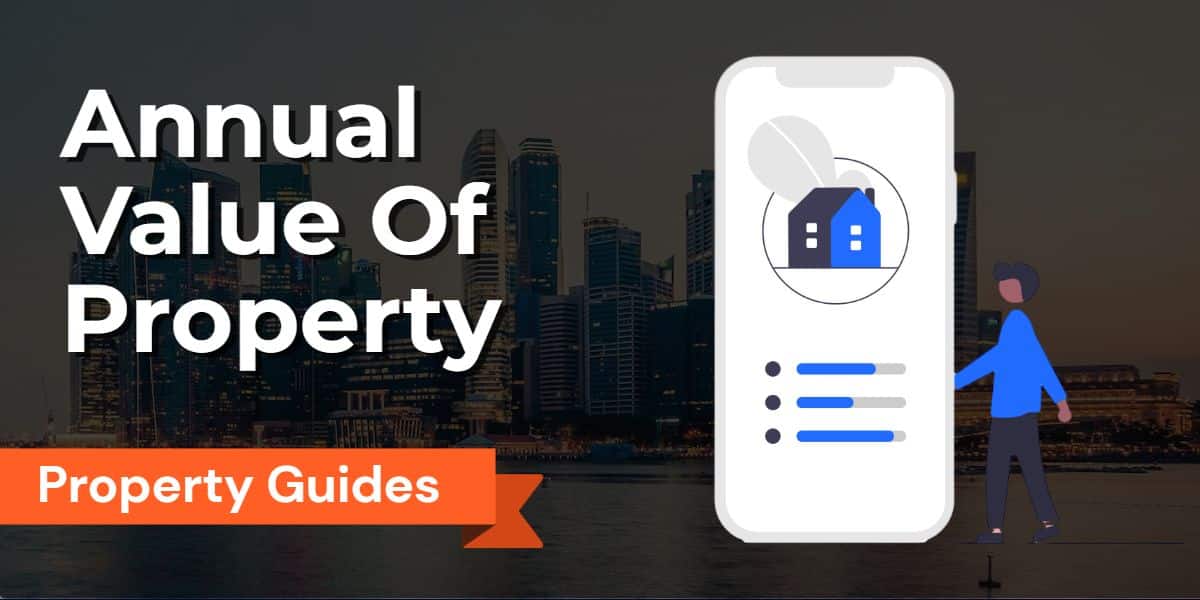
Are you curious about how condominium developments are managed in Singapore?
Look no further!
In this exciting blog, we’ll explore the world of Management Corporation Strata Titles (MCSTs) and their crucial role in ensuring the smooth operation of shared facilities and common areas.
No prior knowledge or jargon is required!
Discover why MCSTs are vital for maintaining amenities like swimming pools, gyms, and playgrounds and how they protect multiple owners’ interests.
We’ll also delve into the responsibilities of the managing agent, the formation process, and the rules and regulations that govern MCSTs.
Get ready for an eye-opening journey into the fascinating world of MCSTs in Singapore!
Key Takeaways
| Topic | Key Takeaway |
|---|---|
| Management Corporation Strata Title (MCST) | MCST is a legal entity formed to manage strata-titled properties |
| Importance of MCST for Condominium Developments | MCST provides structure for managing shared resources |
| Strata Title Application Process | Developer submits title and plan to Singapore Land Authority |
| Role of Managing Body in an MCST | Managing Council oversees daily operations of MCST |
| Responsibilities of the Managing Agent | Managing agent maintains and manages common property |
| Functioning of the Management Council | Council holds meetings, appoints contractors, sets budgets |
| Requirements for Forming an MCST | Multiple owners, shared common facilities, strata title plan |
| Role of Singapore Land Authority in MCST Formation | SLA ensures compliance with regulations in forming an MCST |
| Duties of Managing Agent in MCST | Managing agent maintains property, manages finances |
| Penalties for Breaching MCST Regulations | Fines, legal proceedings for by-law violations |
| Remedies for Owners in Case of Breach | Owners can lodge complaint with Strata Titles Board |
| By-Laws and Regulations Governing MCSTs | Land Titles (Strata) Act and by-laws governed by BCA and SLA |
| Singaporeans’ View on MCST Significance | Recognize importance of MCST but may not fully understand it |
| Challenges in Implementing MCSTs in Singapore | Difficulty in finding volunteers for MCST management |
| Benefits of MCSTs to Singaporeans | MCSTs maintain shared facilities, establish transparent system |
| Common Issues in Maintaining Common Facilities | Disagreements over funds, finding reliable contractors |
| Solutions for Maintaining Common Facilities | Clear guidelines, regular checks, active resident participation |
| Importance of Community Development in MCSTs | Fosters sense of belonging, ownership, and better maintenance |
| Ways to Enhance Community Engagement in MCSTs | Community events, surveys, encouraging resident involvement |
| Benefits of Effective Community Development | Stronger community, better services, higher standards |
| Basics of MCST Financial Management | Proper record-keeping, timely levy collection for sustainability |
| Key Financial and Budget Issues Faced by MCSTs | Initial funding, differentiation of maintenance and public funds |
| Best Practices in MCST Financial Management | Allocating funds for green initiatives, engaging stakeholders |
| Factors to Consider When Selecting a Managing Agent | Experience, reputation, performance metrics |
| Benefits of Appointing a Professional Managing Agent | Administrative and financial support, regulatory compliance |
| Evaluating the Performance of a Managing Agent | Regular review of contract terms, resident feedback |
| Adapting to Changing Market Conditions | Leveraging technology, staying updated with market trends |
| Strategies for Adapting to Changing Market Conditions | Online voting, mobile apps, web portals for better management |
| Role of Technology in Modern MCST Management | Promotes transparency, efficiency, communication |
| Successful MCST Case Studies in Singapore | Effective management, sustaining quality, community engagement |
Introduction to Management Corporation Strata Titles in Singapore
What is a Management Corporation Strata Title?
A Management Corporation Strata Title (MCST) is a legal entity formed to manage a strata-titled property development in Singapore.
It refers to the managing body of a condominium, comprising multiple owners who share ownership of common facilities and property.
Why is MCST important for Condominium Developments?
MCST is essential for condominium developments in Singapore because it provides a structure for multiple owners to manage and maintain shared resources.
With an MCST, someone may take responsibility for the maintenance and upkeep of shared facilities such as swimming pools, playgrounds, or gyms.
How is a Strata Title Application Processed?
The developer of the strata development must submit the strata title and the strata title plan of the action to the Singapore Land Authority (SLA) for approval.
The chief surveyor and a strata title surveyor will then check the projects to ensure they comply with Singapore’s Land Titles (Strata) Act.
Once the SLA approves the plan, it becomes a legal document with the name of the MCST.
Understanding the Role and Functions of MCSTs

What is the Managing Body of an MCST?
The managing body of an MCST is also known as the Management Council (MC), which is elected by property owners at the Annual General Meeting (AGM).
The MC comprises a group of volunteers responsible for overseeing the daily operations of the MCST.
What are the Responsibilities and Duties of the Managing Agent in an MCST?
The managing agent of an MCST is responsible for maintaining and managing the estate’s common property and facilities.
They keep the property, manage the finances, and ensure the building’s occupants comply with the by-laws.
How Does the Management Council Work?
The Management Council holds regular meetings to keep current with the estate’s problems and developments.
They discuss maintenance and repairs, appoint contractors and agents, and set budgets for the MCST.
The management council also has the power to issue fines or penalties for breaches of the by-laws and regulations.
The Process of Forming an MCST for Condominium Development
What are the Requirements for Forming an MCST?
To form an MCST, there must be multiple owners and shared common facilities.
The estate must be a strata-titled property development with a strata-title plan submitted to the Singapore Land Authority for approval.
The property developer must establish the MCST before the first property is sold.
What is the Strata Title Plan, and how is it Prepared?
The strata title plan is a legal document showing each unit’s land boundaries and ownership of the common areas and facilities.
The chief surveyor and a strata title surveyor will check the plans to ensure they comply with Singapore’s Land Titles (Strata) Act.
If the plans are approved, it becomes the legal document with the name of the MCST.
What is the Role of the Singapore Land Authority in the Formation of an MCST?
The Singapore Land Authority (SLA) ensures that the MCST is formed correctly and according to the rules and regulations of Singapore.
The SLA checks that the developer submits the strata title and strata title plan to ensure they comply with the Land Titles (Strata) Act.
Responsibilities and Duties of the Managing Agent in an MCST

What are the Duties of the Managing Agent in managing an MCST?
The managing agent of an MCST is responsible for the upkeep of the estate’s common property and facilities.
They handle all the administrative work related to the MCST, such as collecting maintenance fees, negotiating contracts with vendors, and making payments on behalf of the MCST.
The managing agent also ensures that the MCST complies with the by-laws and regulations governing common facilities and property use.
What are the Penalties for Breaching the Regulations Governing MCSTs?
The penalties for breaching the regulations governing MCSTs range from fines to legal proceedings.
Owners who violate by-laws may receive a fine or sentence from the management council.
If the situation requires legal action, the MCST can seek the help of the Singapore Land Authority to enforce compliance or recover any outstanding amounts owed.
What are the Remedies Available to Owners in Case of a Breach?
If an owner of a property in an MCST breaches the regulations governing MCST, owners can take legal action against them.
They can complain to the Strata Titles Board (STB) or seek legal representation to reclaim outstanding payments.
By-Laws and Regulations Governing MCSTs in Singapore
What are the General Rules and Regulations Governing MCSTs in Singapore?
The primary legislation governing MCSTs is the Land Titles (Strata) Act, which provides the legal framework for strata-titled developments.
The Building and Construction Authority (BCA) and the Singapore Land control the by-laws governing MCSTs in Singapore.
What are the By-Laws that Every MCST Must Follow?
The by-laws govern the use of shared facilities and property within the MCSTs in Singapore.
They include restrictions on food and beverage consumption, the use of facilities such as swimming pools and bbq pits, and guidelines for maintaining common spaces.
How are the Rules and Regulations Enforced by the Building and Construction Authority and the Singapore Land?
The Building and Construction Authority (BCA) and the Singapore Land Authority (SLA) oversee the enforcement of the rules and regulations governing MCSTs in Singapore.
They assist the MCST in enforcing the laws by issuing fines and penalties for violations and providing guidance to the MCST in compliance with the by-laws.
Frequently Asked Questions About MCSTs in Singapore

What is a Management Corporation Strata Title?
The MCST, short for Management Corporation Strata Title, is a legal entity formed by the owners of a condominium or any compound with multiple owners.
It is also known as the Management Corporation, which comes with a share value reflective of the unit’s share value.
How Does an MCST Function?
The primary function of an MCST is to manage and maintain common areas and facilities shared by the homeowners living in the compound.
To do this, the MCST collects maintenance fees and deposits them into a sinking fund for future repairs and maintenance.
The MCST also hires a managing agent to handle the day-to-day operations and is responsible for submitting the strata title plan to the Registrar of Titles.
What are the Responsibilities of the Management Corporation?
The MCST is responsible for ensuring the upkeep and maintenance of the compound’s shared facilities and common areas.
They also need to manage the funds collected from the homeowners, differentiate between the Maintenance Fund and the Sinking Fund, and open a bank account for the MCST.
In addition, MCSTs can differentiate by offering additional services such as community development and engagement.
The Importance of Effective Management in Condominium Development
How Can Effective Management Benefit Condominium Developments?
Effective management from the MCST can benefit condominium developments by providing residents with a comfortable and safe living environment.
With proper maintenance of the common areas and facilities, residents can better enjoy the amenities that come with their unit and have a better overall living experience.
What are the Risks of Poor Management in Condominium Developments?
If the MCST is poorly managed, several risks come with it.
Poor maintenance can lead to safety hazards and a decrease in property value.
Mismanagement of funds collected from the residents can lead to a lack of funds for future repairs and maintenance, causing more problems in the long run.
What are the Qualities of a Good Management Corporation?
A good MCST should prioritize transparency and communication with the residents.
They should also be prompt in dealing with maintenance issues and have a solid financial plan.
As the MCST is responsible for managing the residents’ funds, they should have an open book policy and be accountable for their actions.
Exploring the Singaporean Perspective on MCSTs

How Do Singaporeans View the Significance of MCSTs?
Singaporeans generally acknowledge the need for a managing body such as the MCST to ensure that common areas and facilities are well-maintained.
However, not everyone may fully realize the significance of the MCST’s role in providing a comfortable and safe living environment.
What are the Challenges in Implementing MCSTs in Singapore?
One challenge in implementing MCSTs in Singapore is finding individuals willing to volunteer their time and effort to join the MCST.
As the MCST cannot hire another entity to manage the compound on their behalf, homeowners must step up and be involved in the management process.
What Are the Benefits of MCSTs to Singaporeans?
MCSTs provide a framework for shared facilities and common areas to be well-maintained, which can improve the overall living standards of everyone residing in the compound.
It also ensures that a transparent and accountable system is in place for the management of funds collected from the residents.
Maintaining Common Facilities in MCSTs: Challenges and Solutions
What are the Most Common Issues in Maintaining Common Facilities in MCSTs?
The most common issues in maintaining common facilities in MCSTs are disagreements over the allocation of funds, the difficulty in finding a reliable contractor, and the need for more participation from residents in maintaining the shared facilities.
What are the Potential Solutions to These Issues?
To overcome these issues, the MCST can establish clear guidelines on allocating funds, conduct regular checks on the facilities, and actively engage the residents in maintaining the shared facilities.
How Can MCSTs Ensure Fairness and Transparency in Maintenance Issues?
MCSTs can ensure fairness and transparency in maintenance issues by keeping an open line of communication with the residents, providing regular updates on maintenance work, and encouraging homeowners to participate in meetings to give feedback on the MCST’s performance.
Enhancing Community Development and Engagement in MCSTs

Why is Community Development Important in MCSTs?
Community development is essential in MCSTs as it fosters a sense of belonging and ownership among residents in the compound.
By building a stronger community, residents are more likely to take an active role in maintaining the shared facilities and upholding the rules and regulations of the compound.
What are Some Ways to Enhance Community Engagement in MCSTs?
Some ways to enhance community engagement in MCSTs include establishing community events such as condominium BBQs or Christmas parties, conducting surveys to gather feedback from residents on what they would like to see improved, and encouraging residents to take on leadership roles in the MCST.
What are the Benefits of Effective Community Development and Engagement in MCSTs?
The benefits of effective community development and engagement in MCSTs are numerous.
It can create a sense of unity among residents, foster civic participation, and establish a stronger community that is more invested in the maintenance and upkeep of the compound.
Financial Management and Budgeting in MCSTs
Understanding the Basics of MCST Financial Management
One of the critical challenges facing MCSTs is financial management and budgeting.
When an MCST is formed, a managing body arises, which refers to the managing agent appointed for the development.
The developer will also deposit a sum of money into a bank account under the name of the MCST, and this account will be used to deposit all the money collected from owners for the maintenance fund.
To ensure effective financial management, keeping a proper record of all expenses and concurrently collecting the levies from owners on time is essential.
Failure to do so may result in trouble or cost for the MCST in the long run.
Key Financial and Budget Issues Faced by MCSTs
One challenge arises when the development is lodged and the MCST is formed.
At this point, the developer usually appoints the head maintenance person to oversee the upkeep of the compound.
For the first three years, the managing agent will use the sum deposited by the developer to pay for all the expenses incurred before levies can be collected from owners.
Another way to ensure financial sustainability is to differentiate between the money collected for the maintenance fund and other monies collected for public facilities.
This will help ensure that sufficient funds are allocated for the upkeep of the development.
Best Practices in MCST Financial Management
To promote sustainability and productivity, MCSTs may set aside a portion of the levies collected to implement various green initiatives, such as installing energy-efficient lighting or water-saving devices.
Another best practice is to engage with stakeholders and partners such as suppliers, contractors, and residents to create a shared joint park.
This will promote a sense of community ownership and may lead to better services and standards.
Key Considerations in Selecting a Managing Agent for an MCST

Factors to Consider When Selecting a Managing Agent
The selection of a managing agent is critical for effective MCST management.
When selecting a managing agent, some factors include experience, reputation, and performance metrics.
It is essential to engage a managing agent with expertise in managing a similar-sized development and a reputation for providing quality services.
Benefits of Appointing a Professional Managing Agent
Appointing a professional managing agent has several benefits.
The managing agent can provide administrative and financial support, ensure adherence to regulatory compliance standards, and oversee the maintenance and upkeep of common areas.
By engaging a professional managing agent, MCSTs can free up their time and resources to focus on other vital tasks.
How to Evaluate the Performance of a Managing Agent
Evaluating the performance of a managing agent is critical to ensure that they are meeting the needs and expectations of the MCST.
One way to assess their performance is through a regular review of the contract terms, which should specify the key performance indicators (KPIs) the managing agent is expected to meet.
MCSTs may also conduct surveys to gather residents’ feedback on the managing agent’s performance.
Adapting to Changing Market Conditions: Impact on MCSTs
Market Trends and Their Impact on MCSTs
Adapting to changing market conditions is another challenge facing MCSTs.
With changing demographics, technological advancements, and regulatory requirements, staying abreast of the latest market trends and adopting strategies to stay ahead of the curve is essential.
Strategies for Adapting to Changing Market Conditions
One strategy for adapting to changing market conditions is to leverage technology to enhance productivity and stakeholder engagement.
For example, MCSTs can implement an online voting system for critical decisions, track maintenance requests through a mobile app, and provide residents access to a web portal to view financial statements and other related information.
The Role of Technology in Modern MCST Management
The role of technology in modern MCST management cannot be understated.
By adopting the latest technological innovations, MCSTs can promote transparency, efficiency, and productivity.
Additionally, technology facilitates effective communication between MCSTs and residents, leading to better stakeholder engagement and community development.
Case Studies: Successful MCSTs in Singapore

Case Study 1: Effective Management of a Large Condominium Development
One successful MCST in Singapore is the management of an extensive condominium development.
The MCST has adopted the best financial management and budgeting practices, including setting aside funds for green initiatives and community development.
Additionally, the MCST has engaged a professional managing agent with experience in managing significant effects.
Case Study 2: Sustaining Quality in a Mixed-Use Development
Another successful MCST in Singapore is the management of a mixed-use development.
The MCST has focused on sustaining quality in the story by adopting stringent maintenance and upkeep standards.
Additionally, the MCST has engaged with residents to encourage community ownership and stakeholder engagement.
Case Study 3: Innovations in Small MCST Management
A third successful MCST in Singapore is the management of a small development.
The MCST has adopted innovations such as using smart-home technologies to enhance productivity and stakeholder engagement.
Additionally, the MCST has engaged with suppliers and contractors to promote cost savings and quality services.
Future Trends and Innovations in MCST Management and Governance
Emerging Trends in MCST Management and Governance
As the property market evolves, new trends and innovations emerge in MCST management and governance.
For example, MCSTs are increasingly adopting sustainable practices such as installing solar panels and implementing waste reduction programs.
Additionally, MCSTs are exploring new ways to engage with stakeholders and partners, such as through social media and community events.
Role of Stakeholders and Partners in MCST Governance
The role of stakeholders and partners in MCST governance must be considered.
MCSTs can create a sustainable and productive community for all stakeholders by engaging with suppliers, contractors, and residents.
Additionally, stakeholders and partners can provide valuable feedback to MCSTs on the effectiveness of their management strategies.
Strategies for Enhancing Sustainability and Productivity in MCSTs
To enhance sustainability and productivity in MCSTs, adopting innovative strategies and technologies is essential.
For example, MCSTs can explore using artificial intelligence and machine learning to predict maintenance issues and optimize resource allocation.
Additionally, MCTs can engage with residents to promote community ownership and stakeholder engagement.
By adopting innovative strategies and technologies, MCSTs can create a more sustainable, efficient, and engaged community for all stakeholders.
Conclusion
In conclusion, Management Corporation Strata Titles (MCSTs) play a crucial role in the management and maintenance of condominium developments in Singapore.
They provide a structure for multiple owners to collectively manage and upkeep shared resources, ensuring a comfortable and safe living environment for residents.
Forming an MCST involves submitting a strata title and plan to the Singapore Land Authority for approval.
The MCST’s managing body, the Management Council (MC), oversees daily operations, holds regular meetings, and enforces by-laws and regulations.
Frequently Asked Questions
What does MCST stand for, and what's its function?
MCST refers to the Managing Corporation Strata Title.
Its function is to manage and maintain the shared facilities in residential developments, such as condos and apartments, for the benefit of all owners.
Who forms the MCST, and when does it come into existence?
The MCST is usually formed when the developer submits the development to the chief surveyor.
In most cases, it comes into existence on issuing the strata title.
Can an MCST differentiate from condo management?
Yes, an MCST is responsible for managing and maintaining shared facilities exclusively, while condo management oversees other aspects of the condo, such as individual property units and their residents.
How many MCSTs are there?
There are many MCSTs, as they are formed for numerous owners of shared facilities in condos and apartments across the country.
What are the responsibilities of the MC ST?
The responsibilities of the MCST can be divided into two categories: day-to-day operations, like arranging for day cleaning and detailed observation of the communal activities, and the long-term management of facility matters, such as property appreciation and ensuring the quality of service provided by Facility Managers.
How does the MCST formed to ensure the quality of services provided by the Facility Managers?
The MCST sets rates for the services provided by Facility Managers and takes constant steps to ensure appropriate rates.
They also take active steps to resolve disagreements and ensure the Facility Managers are meeting the demands of the MCST.
What happens if a Facility Manager is not meeting the demands of the MCST?
If a Facility Manager consistently fails to meet the expectations of the MCST, then the MCST may take legitimate steps to replace them.
Before taking action, the MCST will encourage open communication to resolve the issue.
Does the MCST have any legislative authority?
Yes, the MCST has the power to implement and enforce by-laws contained in the strata roll, and relevant authorities may take legal action against any act or omission that contravenes the By-Laws of the MCST.
What is the job scope of an MCST Enquiry Officer?
The MCST Enquiry Officer is the go-to person for complaints or concerns about a shared facility managed by the MCST.
Their job scope includes acknowledging the complaint, investigating the issue, and providing practical solutions to resolve the problem.




















